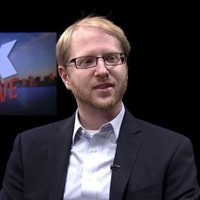(See video interview at https://youtu.be/7yHxCqejlVU)
Ultra-Orthodox Jews have shifted from being seen as a quaint, odd but innocent presence, mostly but not exclusively in New York, to a political power block at the center of numerous controversies. Their very high birth rate makes them the fastest growing of all Jewish sects in the U.S. (and Israel). As their population expands, they have taken over increasing areas of New York City, Rockland County, and small towns upstate. They have been able to roll over resistance from previous residents of those areas and present challenges regarding environmental regulations, residential zoning laws, school boards, and other issues.
However, while their population expands explosively, so does the growing number of those who seek to leave the fold when they are able. That ability to leave is hampered by the fact that children raised in the very insular ultra-Orthodox world often speak little English and have few skills for navigating the world outside. While this is not true of Modern Orthodox families, the more extremely fundamentalist schools of the ultra-Orthodox, (yeshivas) provide very little secular education (math, civics, science, history). As well, the students are taught to fear the outside world. A young adult seeking to find their way outside the boundary of the enclave faces not only intense family and community pressure, but a lack of knowledge on how to communicate, find housing and work.
Despite the fact that New York and most other states have requirements for all schools, including religious ones, to teach English and secular studies, the political power of the ultra-Orthodox has caused even liberal mayors and governors to look the other way. Along comes one yeshiva boy who couldn’t take it any more. Naftuli Moster was raised with 17 siblings in a very conservative sect of the Hasidic world in Borough Park, Brooklyn. His journey, starting with an interest in psychology, led him on an odyssey that put him in conflict with family and community and to his founding of YAFFED (Young Advocates for Fair Education).
YAFFED has taken on the task of advocating for young people who attend yeshivas to receive the state mandated time and attention to secular education. While he and his organization have received a great amount of recognition and awards, the actual progress has been minimal. Political leaders seeking re-election fear the voting block of thousands of ultra-Orthodox mobilized by their rabbinic leaders. The ultra-Orthodox leaders fear that if their youth were educated properly, more would find their way to live outside the very confining norms and traditions of their community. That fear may be well founded, but preventing kids from receiving a full education is both immoral and illegal.
Many popular books have portrayed the very difficult and sometimes dangerous road to leaving the ultra-Orthodox world. There are memoirs such as, All Who Go Do Not Return by Shulem Deen and the hilarious Foreskin’s Lament by Shalom Auslander. Also, several mainstream movies, such as “Unorthodox” and “One of Us” give a stark picture of the challenge in crossing that boundary to the outside world they’ve been raised to see as “the other.”
I had the pleasure of interviewing Naftuli as part of my Crossing Boundaries series. We explored his life as a child growing up leading to his slow transition to a very different kind of life and dedicated activism on behalf of those young people still in the Hasidic yeshivas. You can view the full interview here: https://youtu.be/7yHxCqejlVU.
Resources:
YAFFED: https://yaffed.org/
Footsteps (the only organization in North America that assists people who wish to leave or explore leaving ultra-Orthodoxy). https://footstepsorg.org/
New York Times article on Naftuli and YAFFED: https://www.nytimes.com/2014/11/23/nyregion/a-yeshiva-graduate-fights-for-secular-studies-in-hasidic-education.html
